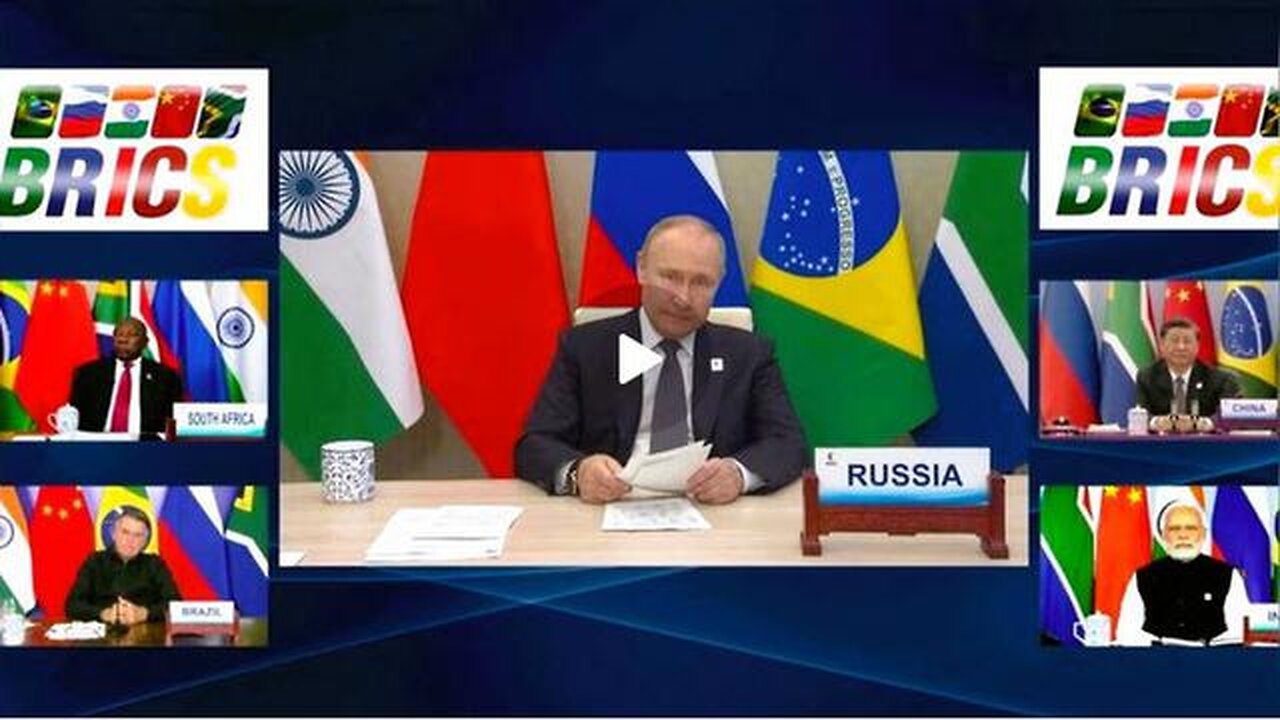Premium Only Content

BRICS Finance Ministers Strike at the Heart of the Dollar: A Call to Burn the Old Guard
The expansion of the BRICS bloc beyond its original members Brazil, Russia, India, China, and South Africa should reignite focus on the group’s long-standing interest in reducing the dollar’s dominant role across emerging markets. At an August 2023 BRICS summit where Argentina, Egypt, Ethiopia, Iran, Saudi Arabia, and the United Arab Emirates (UAE) were invited to join the bloc, frustrations with the dollar were an important topic of conversation. Participants discussed how to make BRICS local currencies’ use in commerce and finance within and between emerging markets more attractive than the dollar’s use2—in other words, how to dedollarize.
For over a decade, such ambitions have been a focus of BRICS policymakers. Yet, today, the vast majority of cross-border transactions involving BRICS members and other emerging markets continue to be invoiced in dollars. Exchanging BRICS members’ and recent invitees’ local currencies with each other and with other emerging market currencies often requires using the dollar as an intermediary to be done efficiently, and a large share of public and private debt in these economies is dollar denominated. In short, dedollarization faces serious headwinds. Will expanded BRICS membership and a renewed focus by BRICS members on increasing local currency usage change this dynamic? BRICS finance ministers and central bankers were tasked at the August 2023 summit with considering the issues of local currencies’ use and payments infrastructure and to report back next year.
-
 LIVE
LIVE
Dear America
43 minutes agoNo More IRS!! Tariffs Bring In Over $500 BILLION! + Taylor Swift Got ENGAGED… This Is A Nightmare!!
10,303 watching -
 LIVE
LIVE
LFA TV
2 hours agoLFA TV ALL DAY STREAM - WEDNESDAY 8/27/25
12,351 watching -
 1:22:55
1:22:55
Game On!
17 hours ago $1.62 earnedBREAKING NFL NEWS: Taylor Swift and Travis Kelce Are Engaged!
21.1K8 -
 41:04
41:04
Coin Stories with Natalie Brunell
1 day agoCooking, Culture & Crypto: Norma Chu’s Food Empire Turns Bitcoin Treasury
18.3K -
 LIVE
LIVE
JuicyJohns
23 minutes ago🟢#1 REBIRTH PLAYER 10.2+ KD🟢
37 watching -
 1:21:19
1:21:19
JULIE GREEN MINISTRIES
2 hours agoLIVE WITH JULIE
31.7K107 -
 LIVE
LIVE
GritsGG
45 minutes agoWin Streaking! Most Wins 3485+ 🧠
18 watching -
 1:02:09
1:02:09
The Confessionals
21 hours agoThe Supernatural Proof You Can’t Ignore (When Angels and Demons Showed Up) | Lee Strobel
30.5K21 -
 15:24
15:24
Degenerate Jay
21 hours ago $0.76 earned5 Best Moments In Batman: Arkham Asylum
14K -
 12:24
12:24
The Shannon Joy Show
15 hours ago🔥From Flock Cameras to Palantir: America’s Expanding Digital Cage🔥
11.8K2